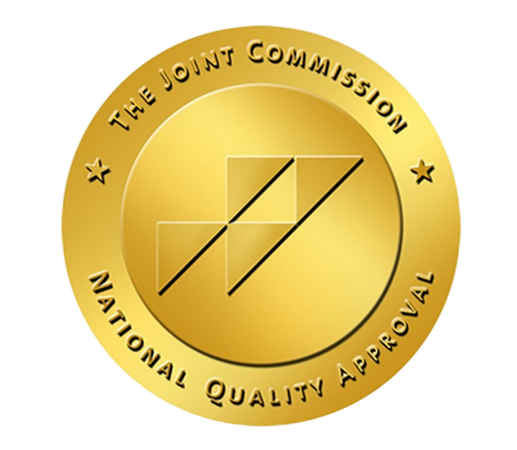Empowering Recovery: Essential Relapse Prevention Strategies
Table of Contents
Relapse and Importance of Implementing Relapse Prevention Strategies
Relapse, in the context of addiction recovery, is a return to substance use after a period of abstinence. It’s important to understand that relapse doesn’t erase the progress made. It’s an opportunity to learn, try new strategies, and strengthen commitments to recovery.1
At AM Behavioral Health, we know that relapse is not a moral failing. We’re here to help individuals get back up and regain sobriety — meeting you wherever you’re at in your recovery journey.

Learning Relapse Prevention Strategies with AM Behavioral Health
- Identify triggers
- Manage cravings
- Stay on track toward their long-term goals
Our Commitment to Client Support
- Building resilience
- Fostering healthy lifestyles
- Creating a supportive environment for long-term success
Understanding Relapse Triggers
- Stress: Stress can be a major trigger for relapse. Financial difficulties, work pressures, or relationship problems can all lead to a desire to escape or numb negative emotions.
- Negative emotions: Feeling overwhelmed by sadness, anger, loneliness, or anxiety can trigger a craving to self-medicate with substances.
- Social situations: Certain social settings, like bars or parties where others are using substances, can be tempting for someone in recovery.
- Boredom: A lack of healthy activities or purpose can lead to cravings as a way to fill the void.
Cravings and Urges: Understanding the Cycle
Addressing Underlying Factors Contributing to Relapse Risk
- Unresolved trauma or mental health conditions: If these issues are not addressed, they can increase a person’s vulnerability to relapse.
- Lack of social support: A strong support system is crucial for recovery. Without it, people may feel isolated and more likely to relapse.
- Unhealthy lifestyle habits: Poor sleep, nutrition, and exercise habits can all contribute to stress and cravings, increasing relapse risk.
Relapse Prevention Strategies: The Relapse Prevention Framework at AM Behavioral Health
Individualized Relapse Prevention Strategies
Our team takes the time to understand each person’s unique experiences and challenges.
Through comprehensive assessments and ongoing communication, we tailor a relapse prevention plan that incorporates strategies to:
- Identify high-risk situations and triggers
- Develop healthy coping mechanisms to manage stress, cravings, and negative emotions
- Build resilience and life skills that promote well-being
- Strengthen support networks and social connections
Evidence-Based Approaches
- Cognitive-behavioral therapy (CBT): CBT helps people identify and challenge negative thought patterns that can contribute to cravings and relapse. By learning to reframe their thinking, people can develop healthier coping mechanisms.
- Motivational interviewing (MI): MI empowers people to explore their own motivations for staying sober. This collaborative approach strengthens the intrinsic desire for a fulfilling life in recovery.
- Dialectical behavioral therapy (DBT): DBT equips people with skills for managing strong emotions, improving communication, and building healthy relationships.
- Skill-building techniques: We equip clients with practical skills to manage stress, cope with cravings, and navigate challenging situations without resorting to substance use.
Continuum of Care Model
- Inpatient and outpatient treatment: We offer various treatment programs tailored to each person’s specific needs and level of care.
- Support groups: Connecting with others who understand one’s struggles can be a powerful tool for staying motivated. AM Behavioral Health fosters a supportive community environment to help clients feel empowered and connected.
- Aftercare programs: We recognize the importance of continued support even after completing formal treatment. Our aftercare programs provide ongoing guidance and resources to help people maintain their progress.
Relapse Prevention Strategies: Cognitive-Behavioral Methods
Here’s how cognitive behavioral therapy (CBT) can equip people for long-term success:4
Cognitive Restructuring
Developing Coping Skills to Manage Cravings
Cravings are inevitable. But, with the right tools, people can navigate them effectively.
AM Behavioral Health uses CBT to help clients develop a toolbox of relapse prevention strategies, including:
- Relaxation techniques
- Deep breathing
- Developing assertive communication skills
Behavioral Interventions
- Identifying and replacing risky behaviors: We help clients identify behaviors that increase the risk of relapse and develop healthier alternatives to fill their time and energy.
- Building a support network: Connecting with supportive people who understand the recovery journey is crucial. CBT can help people develop communication skills to build and maintain a strong support system.
- Reward systems: Celebrating progress can be a powerful motivator. CBT can help people establish a reward system that reinforces positive behaviors and milestones in their recovery.
Relapse Prevention Strategies: Mindfulness and Stress Management Techniques
Mindfulness and Stress Management Techniques
- Body scans: Paying focused attention to different parts of the body can help people identify physical sensations associated with stress or cravings.
- Mindful breathing: Deep breathing exercises can calm the nervous system and create a sense of peace, reducing the urge to self-medicate with substances.
Stress Reduction Techniques
- Relaxation exercises: Techniques like progressive muscle relaxation and guided imagery can help release tension and promote feelings of calmness.
- Recreational therapy: Engaging in enjoyable activities can be a healthy way to manage stress and improve well-being. AM Behavioral Health incorporates recreational therapy as part of our holistic approach.
Building Resilience Through Mindfulness-Based Approaches
Relapse Prevention Strategies: Lifestyle Modifications for Sustained Recovery
Importance of a Healthy Lifestyle
- Nutrition: Eating a balanced and nutritious diet provides the body with the essential nutrients it needs to function optimally, promoting health and well-being.
- Exercise: Regular physical activity is a powerful stress reliever and mood booster. Exercise also improves sleep quality and self-esteem, all contributing factors in relapse prevention.
- Sleep hygiene: Getting enough quality sleep is crucial for emotional regulation, cognitive function, and physical health. Establishing a consistent sleep schedule and practicing good sleep hygiene can significantly improve well-being.
Building a Supportive Social Network
- Engage in meaningful activities: Taking part in activities people enjoy and that contribute to a sense of purpose can boost mood and provide a healthy outlet for stress.
- Develop a supportive social network: It’s important for people to connect with others who support their recovery goals and who can offer encouragement and understanding.
Changing Perspectives: Viewing Relapse as a Learning Opportunity
From Setback to Stepping Stone
Cultivating a Growth Mindset
Self-Compassion and Resilience in the Face of Relapse

Relapse Prevention Strategies: Empowering Patients for Long-Term Success
Collaboration for Relapse Prevention
- Identify individual needs
- Develop a comprehensive treatment plan
- Provide ongoing support throughout the recovery journey
Empowering Patient Ownership
Celebrating Milestones and Achievements
Find Hope and Healing at AM Behavioral Health
At AM Behavioral Health, you’re more than just a client. Our Ohio team is made up of caring professionals who are deeply committed to your well-being.
Contact Us Today
If you or a loved one are ready to learn effective relapse prevention strategies, help is just a phone call away. Schedule an appointment by calling our intake department or visiting us during walk-in hours. Our friendly Admissions Coordinators will listen to your concerns and guide you through the process.





